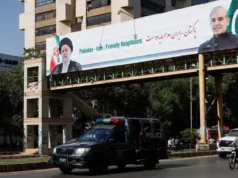Indo Pak Diplomatic Relationship May Be Restored with High Commissioners

After last week’s surprise ceasefire announcement by India and Pakistan, the two neighbours may be seriously considering restoring their respective High Commissioners in the missions in New Delhi and Islamabad. Both the countries had recalled their High Commissioners after the Pulwama terror attack in February 2019, and both missions have been functioning at low key.
Previously in 2002, the two countries had withdrawn their High Commissioners was at the height of Operation Parakram. It was restored only after the ceasefire agreement of 2003 between General Musharraf and government of India. It also saw PM Vajpayee travel to Islamabad for the SAARC summit in January 2004.
Though a similar story this time may not be in the works, Any possibility of PM Modi travelling to Islamabad for a SAARC SUMMIT later this year are distant and remote. But it’s not just politics that goes around in circles. Sometimes, so does diplomacy.
So what has brought about this sudden cooling of temperature ? Some back-channel negotiations had definateky happened between NSA Ajit Doval and the Pakistani civilian and military leadership over the last three months, including a possible meeting in a third country. Neither Country has confirmed this but neither have they officially denied it.
The ceasefire announcement was preceded by a series of favourable statements coming from both the Pakistani civilian and military leadership. On February 2, General Bajawa had made a strong pitch for Indo-Pak peace. It was followed days later by the Pakistan PM’s special advisor on national security Moeed Yusuf talking about the need to move forward. It was capped last week by Imran Khan’s statement while on a bilateral tour to Sri Lanka.
It’s clear that the ceasefire announcement may be followed by other steps in case Pakistan keeps behaving. A rapprochement process may definitely re start. It’s also clear that such a high-profile announcement had to have the clearance at the highest level of Prime Minister Modi and General Bajawa.
Both sides are proceeding extremely cautiously as such attempts have failed too many times in the past. Yet, there is a realisation in Pakistan Government and the Pakistan Army that they must negotiate a permanent cease fire or be ready to perish.
For India, the ceasefire announcement caps two good weeks of diplomacy. It came right after the disengagement announcement with China. Right after the ceasefire announcement on Thursday, Foreign Minister Jaishankar had over an hour long talk with hiscounterpart. Both agreed at least to establish a hotline between their offices.
One thing that became abundantly clear through 2020 is that India is not afraid of a two-front war and is mentally fully prepared for it. That is the very thing the Indian Army has been preparing for since at least the mid-nineties. The Army’s capabilities were clearly demonstrated during the Chinese incursions along the LAC in eastern Ladakh, and exponential ceasefire violoations along the LOC in Kashmir. With the force build up in Ladakh, now it is the turn of Pakistan to fear about its Occupied Baltistan area.
However, India still needs to build up the IAF to 45 Squadron as of YESTERDAY and then add few more to bring it up to 54 Squadron to fight a two front War without hiccups.The Indian Navy too requires more submarines, P8Is and the third aircraft carrier during the two front War to severe the Chinese Jugular Vein passing through the Indian Ocean Region Sea trade lanes.
Though politically, it makes little sense for the Indian government to enter into a two-front war with an economy that is now on the up swing after the pandemic.However India will no more bend backwards if such war is thrust upon us.
The new US administration under President Joe Biden is no fan of wars in far-off places. Their number one priority in South Asia is to reduce American troops in Afghanistan and secure some form of political understanding between the Afghan government and the Taliban. Pakistan quickly realized it is much better off engaging with the Americans on this front without having to look over its Eastern flank.
Pakistan has vehemently denied any American pressure in bringing about this détente with India and by now every one is aware that India cannot be pressurized. It is also clear that that the new administration in White House will not want to antagonize India over any thing especially Pakistan. For India, anything the Biden folks say on Kashmir, human rights etc. is anathema. The timing of the India-China disengagement announcement coming just hours before the Biden-Xi phone call also indicates that even China wants to avoid Three Fronts …..Western Theatre with India and Eastern & Southern Theatre with Taiwan and USA.
Though one of the first countries to welcome the India-Pakistan ceasefire announcement was the UAE. Saudi Arabia has so far been quiet as it is angry not only with Pakistan but even the USA. It’s clear that the Biden administration is pressing It but certainly no one can threaten the Saudi Crown Prince Mohammed bin Salman’s himself and get away. It seems the Americans have already forgotten all the wisdom gained and imparted on the US State and Defence Departments by General Schwarzkopf during the War with Iraq.
Biden will want to revive the Iranian nuclear deal that got lost under the previous Trump administration. As a consequence, Saudi Arabia’s strategic importance in the region is not going to diminish. Washington will be quite wrong if it thinks so. For India, Saudi is still the number 1 oil supplier, and the maximum number of expat Indians work in Saudi Arabia. With petrol already at Rs 100 per litre, New Delhi can ill afford any kind of supply squeeze by OPEC led by Saudi Arabia. Saudi is also eyeing the Indian defence PSUs to meet its strategic needs.



